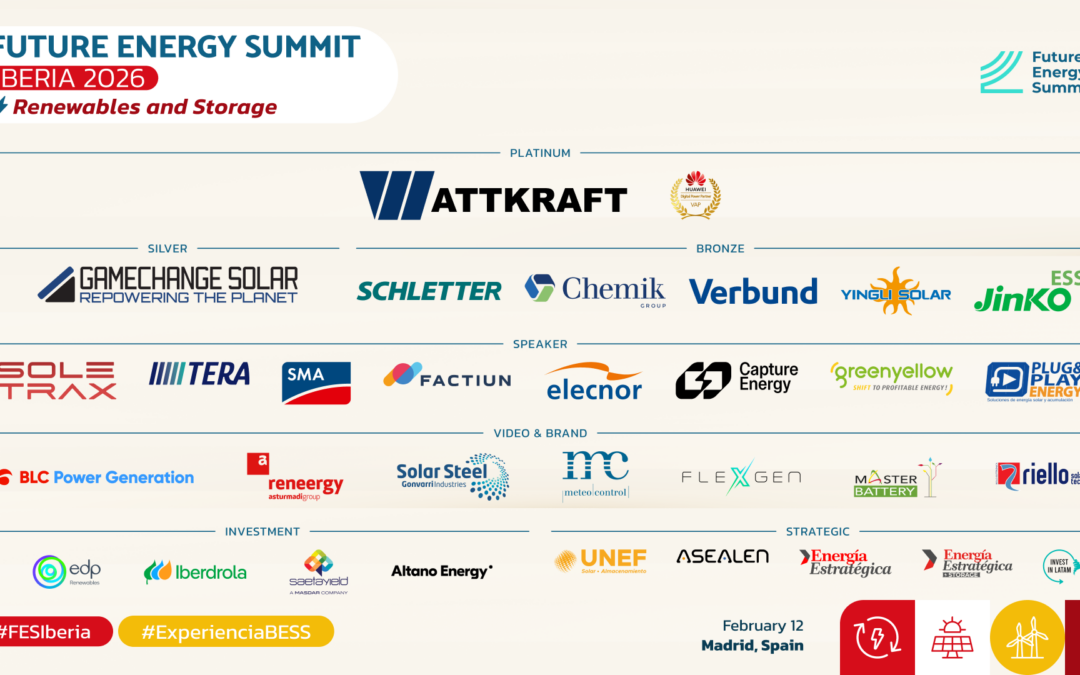The 12th Solar Forum, organized by the Spanish Photovoltaic Union (UNEF), has once again established itself as the leading event for the sector in Spain. From this venue, the industry has delivered a unanimous message to institutions and the public about the need to take advantage of the competitive advantage that photovoltaics, combined with energy storage, represents for the country.
In the words of José Donoso, director general of UNEF, “ our sector is at a crossroads and is facing important decisions. There is a very significant demand to be met in the country: more than 70 GW of electricity demand between connection points granted and those in the planning stage. Our sector must be prepared to meet this demand and support the country’s reindustrialization .” He added: “ Most of these GW are companies seeking the cheap energy produced by photovoltaics .”
For José Donoso, ” this has also been a year marked by the blackout, which has presented challenges but also opportunities .” He complains that there has been a lot of misinformation about it, and that at first, renewables were unfairly blamed and the incident was attributed to a lack of inertia in the system. However, he emphasizes that ” today, various reports confirm that the main problem was voltage control. A voltage control that, while photovoltaic technology could provide, the regulations in force at the time did not allow.”
For this reason, Donoso also highlighted the opportunities this has brought, such as making progress on necessary regulatory changes that were pending, for the advancement of storage, or those related to the update of OP 7.4, which will allow renewables to participate in voltage control, ” which will help to have a more secure, reliable, and flexible system ,” he emphasized.
In this regard, Beatriz Corredor, president of Redeia , commented in her speech that ” we welcome the approval of OP 7.4 so that renewables can control voltage, something we have been requesting from the system operator. We are working as quickly as possible to implement this new service, for which we began permitting last week .”
Analysis of the sector’s pulse and visions for its future
The 12th edition of the Solar Forum also featured, for the first time, a special intervention by Alberto Nadal, Deputy Secretary of Economy of the Popular Party , who outlined his party’s vision on energy matters and answered direct questions from production, storage, self-consumption and manufacturing business leaders .
Nadal emphasized that photovoltaic energy is already the cheapest way to produce energy and that “it is and should be the backbone of the Spanish electricity system.” However, for it to continue developing, “we must increase demand, establish interconnections, and develop storage, both with pumping and batteries . “
The second day of the 12th Solar Forum featured the participation of Eva María Blanco Benavente, Deputy Director General of Environmental Assessment at the Ministry for Ecological Transition , who analysed what the implementation of renewable energy in Spain has meant for environmental assessment, applauded the importance of renewables in the energy transition and shared the keys to streamlining the process.
The final session also addressed the viability of manufacturing photovoltaic components in Europe following the passage of the Net Zero Industry Act (NZIA). The debate brought together senior executives from leading companies such as Sungrow, Arctech Solar, Gamesa Electric, Nextracker, PVH, and Gamechange Solar to discuss the continent’s manufacturing future.
The event also analyzed the main challenges for financing new projects in the current context and the importance and strategic value of territorial roots. Representatives from the government, mayors, and legal experts discussed best practices for integrating projects into the region.
Storage was another key topic at the meeting, which featured a dedicated panel to analyze its role in self-consumption as a key tool for decarbonizing industry. This debate included input from the Ministry and leading technology companies.


























